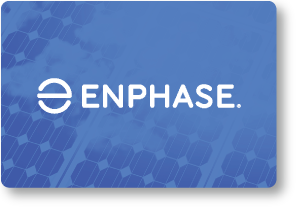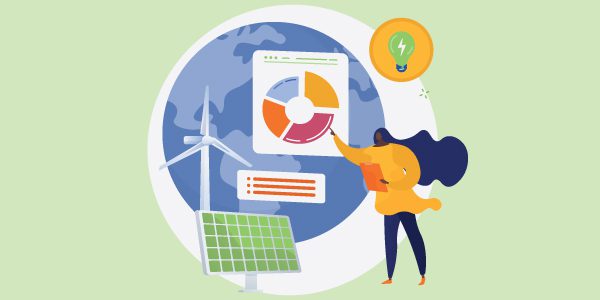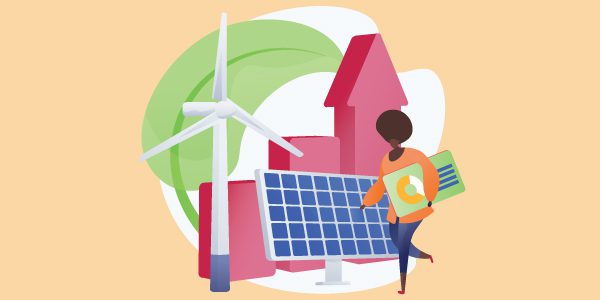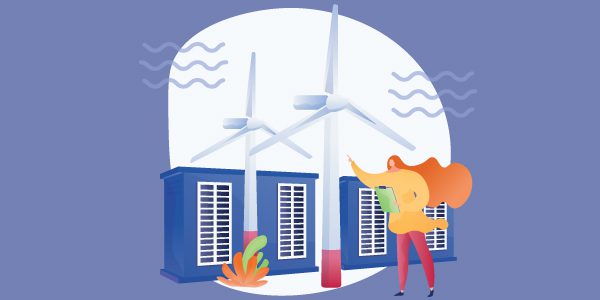In todays’ era, having a workforce comprising people with different social identities and making these employees feel respected, connected and valued is a part of every successful business strategy.
Diversity and inclusion are essential in business today. A healthy variety of people from all backgrounds and cultures provides us with a balance of voices and diverse thoughts that we need to succeed.
Why Is Diversity & Inclusion Important?
A diverse and inclusive workplace establishes a sense of belonging among employees. When employees feel more connected to their work, they work harder and smarter, providing a higher quality of work. As a result, workplaces that prioritise diversity and inclusion see an improvement in business results, innovation and decision-making.
Both Diversity and Inclusion are essential, but diversity without inclusion can result in a toxic culture, and inclusion without diversity can make a company stagnant and uncreative.
Companies today are shifting focus towards diversity but have ignored inclusion. Without a concerted effort towards both, workforces will continue to feel out of place and unsupported.
Diversity In The Australian Renewable Energy Sector
The renewable energy industry in Australia is still new compared to other more mature markets, such as Europe or the US. The industry is growing rapidly, and it is important that we make the most of the benefits of diversity and inclusion.
Unfortunately, female participation rates in the Australian energy industry are only 22 percent, meaning that organisations are missing out on top talent that will be essential for the industry to grow and build on innovation.
Challenges To Having A Diverse Workforce in Australia's Renewable Energy Sector
Despite making up 48% of the global labour force – women only account for 32% of the renewable energy sector in Australia. This is even less for management positions.
The barriers that women face in the energy sector are much the same as those in the economy such as lack of female leaders, gender stereotypes, lack of flexible work practices, affordability and accessibility of childcare, sexism… the list goes on.
However, the challenges of the renewable energy sector are more pressing in Australia since the industry is currently going through a major transformation.
For the industry to reach its full potential, it requires innovative solutions. And since we know innovation stems from diverse minds coming together, this means that business models need to adapt to attract a more diverse talent pool if they seek to innovate.
Finally, having strong female role models within the industry is extremely important for professional development and support. However, one of the biggest challenges women in the industry report today is that they don’t have access to role models demonstrating a successful work-life balance.
Solutions To Having A Diverse Workforce In Australia's Renewable Energy Sector
To increase female participation in the renewable energy sector, which is traditionally male-dominated, we need to start teaching diversity and inclusion early on, both at school and at university.
STEM (science, technology, engineering, maths) courses lead to many positions in this sector. Having role models who encourage, engage and support upcoming talent through internships or graduate programs is the first step organisations can take to make their workforce more diverse.
Bringing societal change would also encourage more female participation in energy sectors. Currently, society views on-site jobs as male-centric, so the work environment and conditions are also very fine-tuned.
If employers can change societal attitudes by marketing jobs in the energy space as a “job for everyone and anyone” and have a work culture that appeals to all genders, then female participation can increase.
The recruitment process of an organisation should also focus on recruiting a diverse workforce comprising people from different backgrounds, different ages and of different genders. And this goes way deeper than simply adding a “diversity” disclaimer at the bottom of job adverts.
For instance, the language used within the entire job advert is a clear representation of how inclusive an organisation truly is, and directly reflects on the organisational culture.
As such, businesses seeking to innovate should dig deep and work closely with both their HR & Talent Acquisition teams to get a better understanding of what different employees value. This will enable them to take action and implement real change, which will naturally attract a more diverse workforce.
Finally, having a diverse leadership team in an organisation also has a significant role in making the organisation more inclusive. As their actions play an essential role in forming the organisational culture, it is crucial to keep diversity top of mind when building a leadership team.
The energy sector remains one of the least gender-diverse workforces. Closing this gender gap will be vital as women are key drivers of innovative and inclusive solutions. For the clean energy sector, the transition will require creative solutions and business models to be adopted, as well as greater participation from a diverse talent pool. What steps will your business take to make this a reality?












